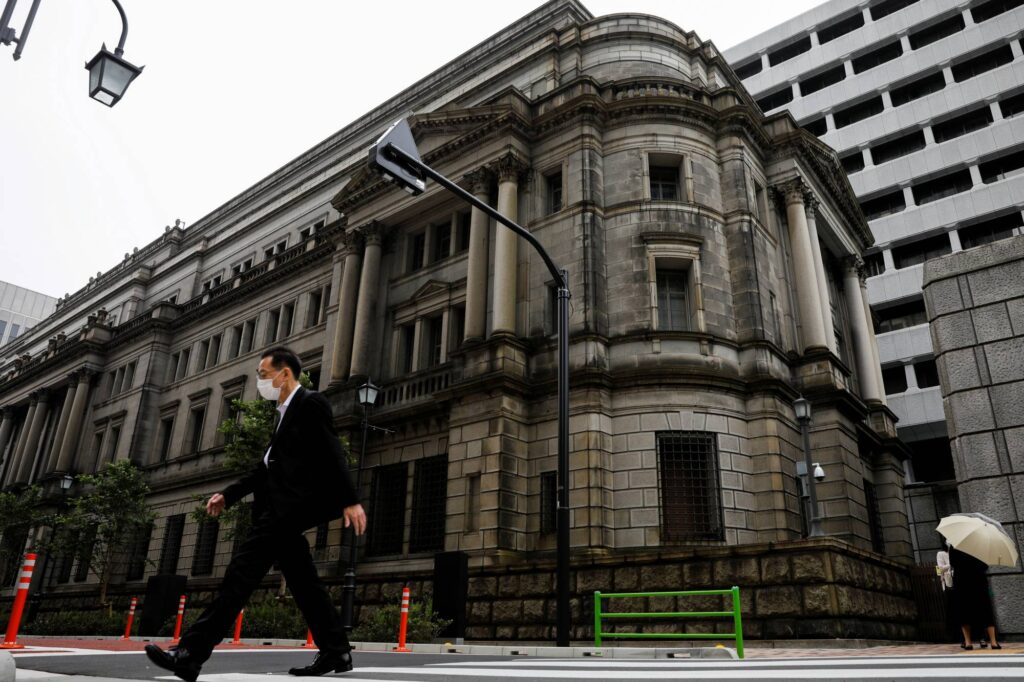Tokyo, 22 July, /AJMEDIA/
The Bank of Japan on Thursday maintained its ultralow rate policy to support the nation’s budding economic recovery, bucking the global trend of monetary tightening despite the prospect that inflation will reach its 2 percent target this year and the yen may weaken further.
Governor Haruhiko Kuroda said that in order for inflation to become stable and sustainable, further wage growth is needed through monetary easing. Raising interest rates is not an option and will do little to stop the weakness of the yen, he added.
In a quarterly outlook report released after a two-day policy meeting, the BOJ upgraded its core consumer inflation forecast to 2.3 percent in fiscal 2022, up from its earlier forecast of 1.9 percent.
The upward revision reflects higher energy and raw materials costs, blamed on Russia’s invasion of Ukraine, along with the effect of a weak yen that inflates import prices. Risks to prices are “skewed to the upside for the time being but are generally balanced thereafter,” the BOJ said.
The war in Ukraine, supply bottlenecks prolonged by China’s zero-COVID policy, and recession fears driven by policy tightening in major economies are casting a pall over the Japanese economy.
The world’s third-largest economy is now forecast to grow 2.4 percent in terms of real gross domestic product for fiscal 2022, down from 2.9 percent seen in April, the BOJ said.
The central bank retained its yield curve control program by setting its short-term interest rate at minus 0.1 percent and guiding 10-year Japanese government bond yields to around zero percent.
The largely expected decision means the BOJ will remain an outlier while its major peers are tightening policy to fight inflation. It comes ahead of an expected rate hike by the European Central Bank on Thursday, its first in 11 years, and another rate increase by the U.S. Federal Reserve next week.
“It’s far from plausible that raising interest rates a little will stop the yen’s depreciation. It will need aggressive rate hikes if we are to try to stop the yen’s fall but that would do considerable damage to the economy,” Kuroda told a press conference after the policy meeting.
A growing number of companies are passing on higher costs, mainly those from imports, to consumers by raising retail prices. But they are yet to be “broad-based,” and wage growth holds the key in determining if the inflation target can be met, Kuroda said.
“Further wage growth is necessary to ensure 2 percent inflation is attained stably and sustainably,” he said. “To this end, the BOJ must continue monetary easing to firmly support an economy in the midst of recovery from COVID-19.”
The diverging policy paths, or the widening of the interest rate divide between Japan and its U.S. and European peers, have sharply weakened the yen toward 140 versus the dollar, a psychologically important line that could test the tolerance of Japanese authorities that are increasingly concerned about the currency’s rapid depreciation.
The BOJ retained its in-principle offer to buy unlimited amounts of 10-year bonds at a fixed rate of 0.25 percent every business day to defend its upper limit on the key yield.
Analysts say the BOJ can expand the trading range of minus 0.25 percent and 0.25 percent for 10-year yields as overseas interest rates are rising. Such a step would narrow the gap and help limit the fall of the yen, which has already hit a 24-year low against the dollar.
Kuroda, a former top currency diplomat for Japan, said the recent rapid yen depreciation is undesirable and negative for the economy as the BOJ sees the need to pay “due attention” to volatility.
But the dollar is also gaining strength against other major currencies, including the euro and British pound, and this supports his view that small rate hikes by the BOJ will not suffice to arrest the Japanese currency’s decline, he said.
Despite extremely high uncertainty, the BOJ gave a brighter economic assessment than the previous meeting last month. The economy “has picked up with the impact of COVID-19 waning, despite being affected by factors such as a rise in commodity prices,” it said.
Kuroda said he is “extremely worried” about resurging COVID-19 cases in Japan where the daily count is at a record high this week.
The BOJ is in dilemma in sticking to monetary easing. The durability of recent price rises is still in doubt but it needs to deflect criticism from consumers already feeling the rising cost of living due to higher energy and food prices.
“Governor Kuroda has made it clear that the BOJ will not budge (over policy),” said Toru Suehiro, a senior economist at Daiwa Securities Co., adding that the governor sounded neutral in explaining the benefits and demerits of yen weakness.
“The BOJ does not need to move now when markets have already priced in the possibility of further rate hikes by the Fed this year to a large extent, meaning that room for further yen declines appears limited,” he said.
Asked about any impact from the death of former Prime Minister Shinzo Abe, who was a staunch supporter of bold monetary easing, Kuroda said the central bank’s mandate to ensure price stability will not change. Prime Minister Fumio Kishida is building on the former leader’s “Abenomics” economy-boosting program.

